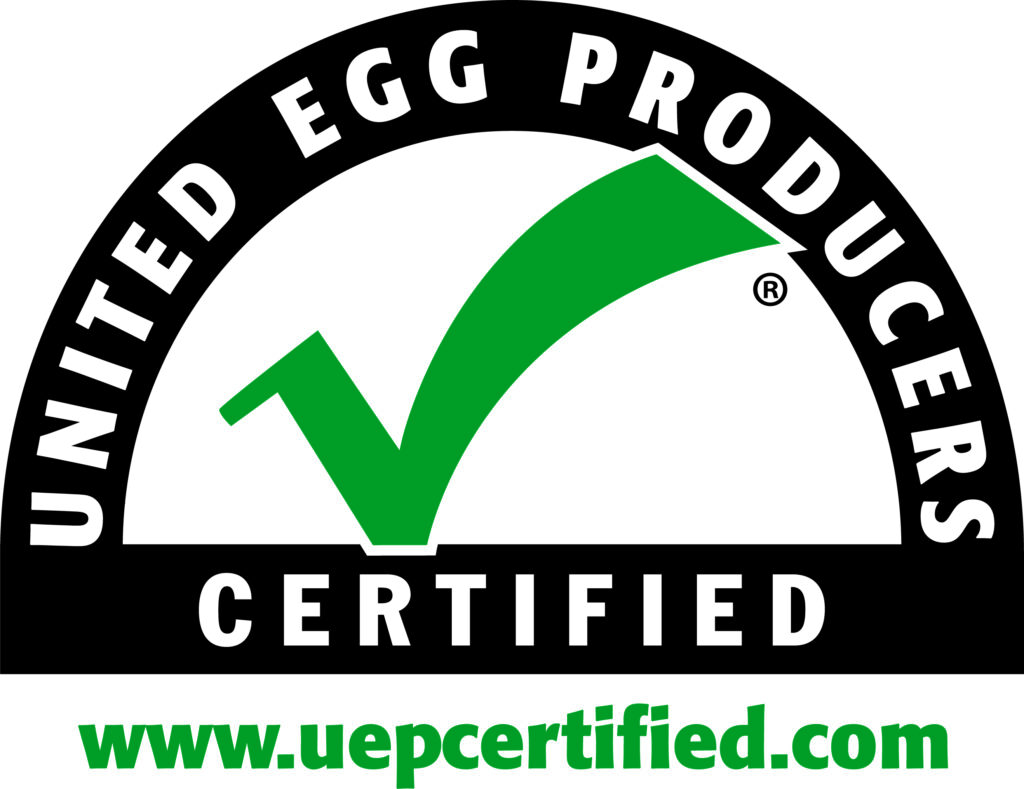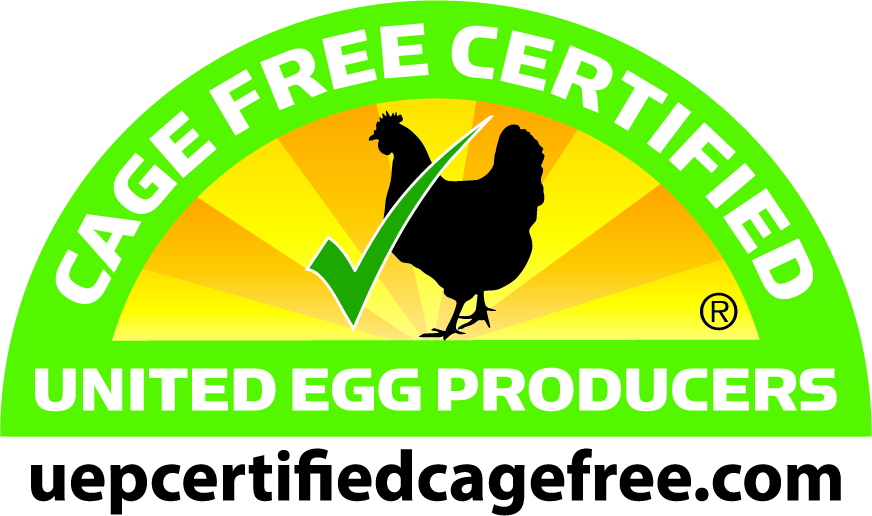

Farmers are committed to offering many choices to consumers shopping for eggs. Check here for an explanation of different labels on egg cartons.
Eggs marked with these logos are laid on farms following UEP Certified or UEP Certified Cage-Free guidelines to ensure optimal hen welfare. The guidelines were developed by an independent Scientific Advisory Council and are updated for continuous improvement. All UEP Certified egg producers undergo annual audits by independent auditors and each year at least 25% of the layer houses are randomly selected for auditing.
Eggs laid by hens on farms that meet the American Humane Certified science-based animal welfare standards for cage-free, enriched colony, or free-range/pasture environments. A Scientific Advisory Council developed the guidelines. A third-party audit verifies program compliance.
Eggs laid on farms that meet the Human Farm Animal Care science-based animal welfare standards for cage-free or free-range/pasture environments. A Scientific Advisory Council developed the guidelines. A third-party audit verifies program compliance.
Eggs laid by hens on farms that meet the Animal Welfare Approved standards for free-range and pasture environments. A third-party audit verifies program compliance.
Eggs laid by hens fed and housed according to USDA organic standards. This includes a diet with ingredients grown to standards detailed within the organic program and access to the outdoors.
Eggs laid by hens able to roam vertically and horizontally in an environment that allows them to exhibit natural behaviors. Often the hens are housed indoors to keep them safe from predators and extreme weather. See Why are hens housed indoors?
Eggs laid by hens with some access to the outdoors. There are no uniform standards. These eggs are usually more expensive due to high production costs and the lower volume of eggs per farm.
The USDA grade shield on the carton shows the eggs were graded for quality and checked for weight under the supervision of a USDA grader. USDA grading is voluntary, and farms that choose to have their eggs graded pay for this service. State agencies monitor farms that do not use USDA’s grading service, and their carton will have a term such as “Grade A” without the USDA shield.
Regardless of the label, all hens are raised without supplemental hormones, as required by U.S. federal law. See also Confused about hormones and eggs?
Eggs laid by hens are never treated with antibiotics. In general, farms use methods other than antibiotics to ensure the hens’ health, such as high biosecurity standards and vaccinations. In the rare case, the hens get sick, egg farms may use a limited number of FDA-approved antibiotics to help hens return to good health. The farms must comply with FDA guidelines which ensure antibiotic residues are not found in eggs in the food supply. See also Antibiotics on the farm.
Regulated by FDA, shell eggs are heated to temperatures just below the coagulation point to destroy pathogens. This type of egg may provide benefits for immune-compromised individuals.
Eggs laid by hens with an enhanced diet, often containing canola, linseed, or flaxseed. Eggs enriched with Omega-3’s contain 100 mg up to 600 mg of Omega-3’s, compared to the typical 30 mg in regular eggs.
Eggs laid by hens fed a vegetarian diet. Chickens are natural omnivores, meaning they will eat animal and plant origin foods in less controlled environments. Therefore, this label is typically not applicable for pasture and free-range eggs.
Eggs laid by hens who have mated with a rooster. They can be found at specialty food stores. Commercially raised eggs are not fertile.